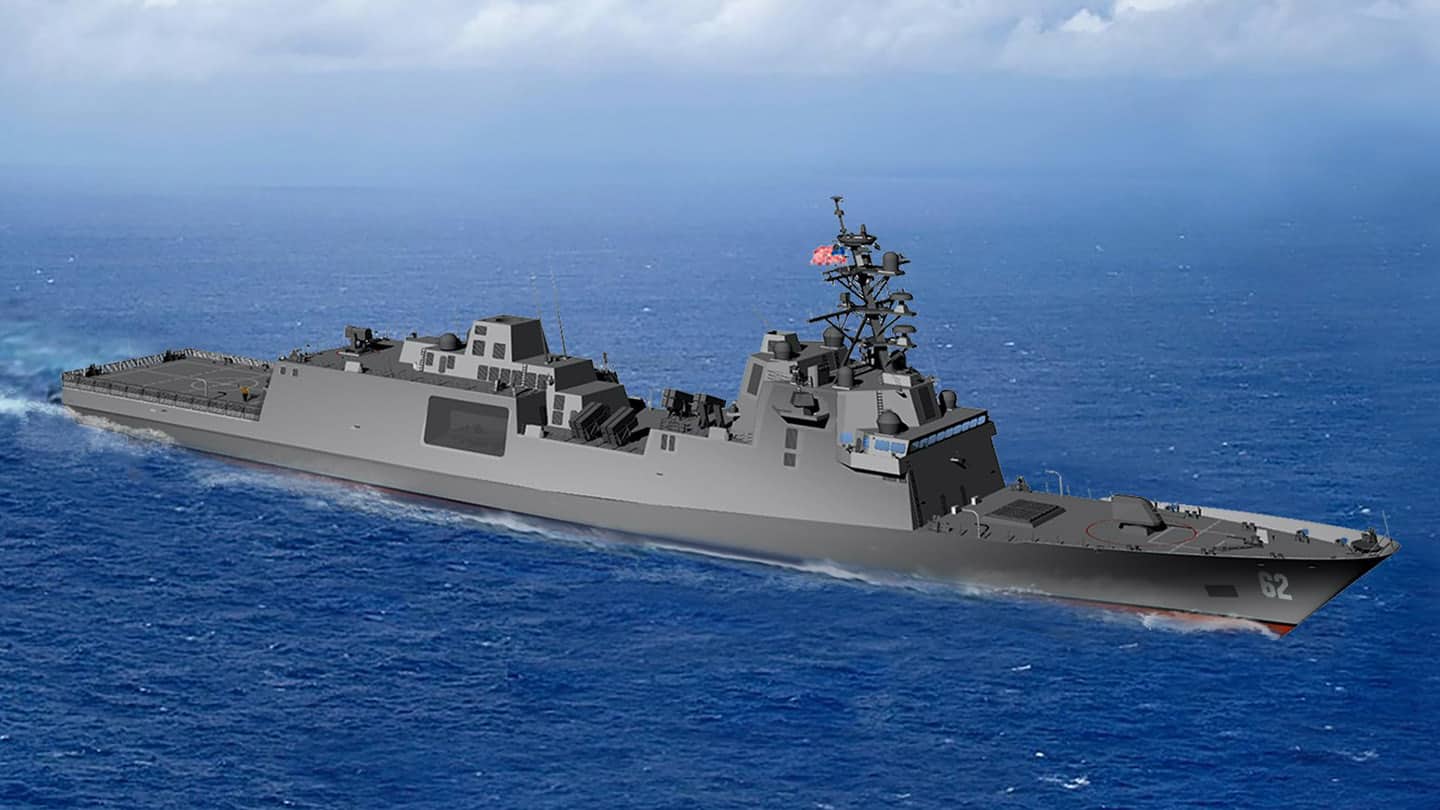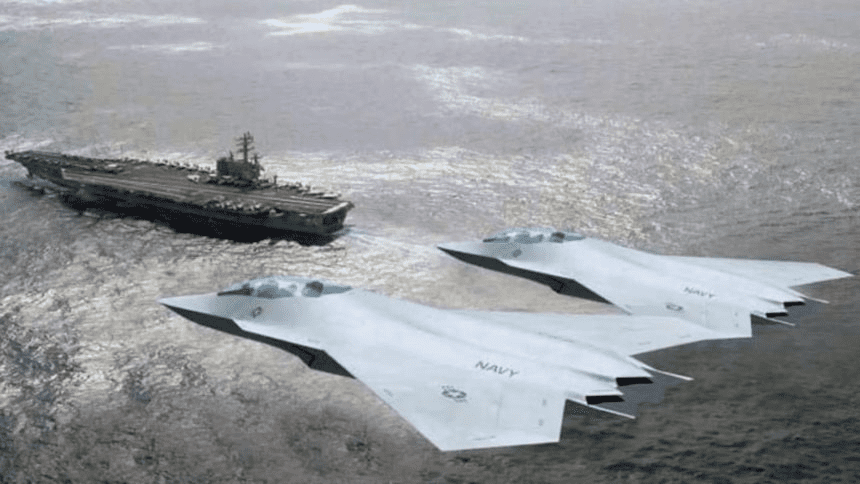Updated: February 5, 2026 (Originally published November 2, 2007)
We know that NORAD, the U.S. Air Force’s North American Aerospace Defense Command, tracks nuclear missile launches, enemy infringement of air space and even Santa Clause but did you know they also track ships?
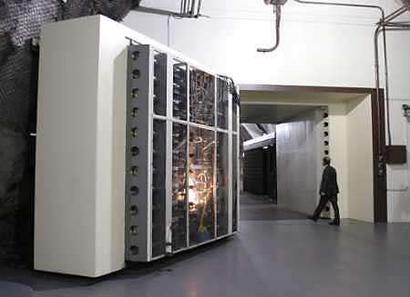 That’s right, after 9/11 NORAD decided to close the blast doors at Cheyenne Mountain began opening it’s doors to other government agencies including the Department of Homeland Security the Coast Guard and Navy. As part of the new joint operations initiative NORAD’s new, significantly less impressive, home near the famed mountain became the primary location for tracking Maritime Threats. In fact from 2004 until just this March the commander of NORAD has been a Navy Admiral.
That’s right, after 9/11 NORAD decided to close the blast doors at Cheyenne Mountain began opening it’s doors to other government agencies including the Department of Homeland Security the Coast Guard and Navy. As part of the new joint operations initiative NORAD’s new, significantly less impressive, home near the famed mountain became the primary location for tracking Maritime Threats. In fact from 2004 until just this March the commander of NORAD has been a Navy Admiral.
Why track maritime threats from an Air Force base? In an interview with The National Defended NORAD Commander Admiral Timothy J. Keating answered the question:
U.S. Northern Command (USNORTHCOM) is a completely different command with a somewhat similar mission. It’s a much newer command however. We’re only in existence for a couple of years now following the attacks of 11 September. Our task is, very simply, to defend our country against external threats.  We have another important mission, and that’s in the event of some catastrophe—if the secretary, for instance, decides that the Department of Defense contributions to the support of civil authorities is appropriate, we provide that support, whether it’s the state, local, federal requests, we are positioned and trained and equipped to provide that support to those civilian authorities in the event of a disaster.
We have another important mission, and that’s in the event of some catastrophe—if the secretary, for instance, decides that the Department of Defense contributions to the support of civil authorities is appropriate, we provide that support, whether it’s the state, local, federal requests, we are positioned and trained and equipped to provide that support to those civilian authorities in the event of a disaster.
Two commands are co-located, building on the excellent command and control systems in Cheyenne Mountain Command Center and our headquarters building and leveraging 47 years of NORAD experience in defending the continent…
In today’s world it makes sense to discuss potential cooperation in other domains––particularly maritime. Expanding NORAD’s charter beyond aerospace would be a decision to be made by our respective governments.
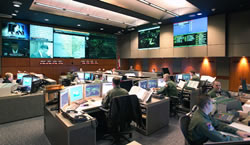 Currently, however, Northern Command, supported by the Navy and Coast Guard as our primary maritime combat capability, has the lead for maritime homeland defense. Since 9/11, the Coast Guard has created maritime safety and security teams––federal maritime SWAT teams––highly trained, strategically located and specially equipped to provide an extra layer of security to key ports, waterways and facilities.
Currently, however, Northern Command, supported by the Navy and Coast Guard as our primary maritime combat capability, has the lead for maritime homeland defense. Since 9/11, the Coast Guard has created maritime safety and security teams––federal maritime SWAT teams––highly trained, strategically located and specially equipped to provide an extra layer of security to key ports, waterways and facilities.
Our partners in the Coast Guard have also boarded and inspected over 10,000 ships to search for threats and confirm the identity of those aboard. They’ve developed special “sea marshal” boarding procedures where armed Coast Guard personnel were onboard certain ships entering and leaving U.S. ports to ensure they stay safely on course. We continue to work with them to establish and enforce naval vessel protection zones around U.S. Navy vessels in U.S. ports. They have enforced over 100 security zones around sensitive maritime areas and facilities.
A maritime NORAD is a nice concept, but the maritime domain is very different from the air domain. There are no flight plans along predetermined routes, no air traffic control. So we think that it may be unnecessarily restrictive. That is to say we want to be able to work with other partners, principally Mexico, as Mexico reaches their own decisions on the degree to which they want to participate with information sharing. And our good friends in the Southern Command and throughout the hemisphere and then throughout the other geographical combatant commander areas of responsibility, we share information and a common operational picture.
We think maritime NORAD under the construct that we have enjoyed the aerospace NORAD would be unnecessarily restrictive, though that is not to say we would discount Canada’s participation in a maritime NORAD. And the negotiation is ongoing with the State Department in the lead. In the meantime, USNORTHCOM coordinates with National Defense Headquarters in Ottawa for critical bilateral maritime defense response. Read More…
Editorial Standards · Corrections · About gCaptain

 Join The Club
Join The Club



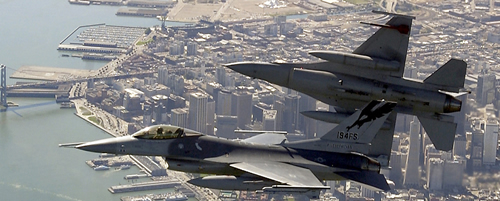

 We have another important mission, and that’s in the event of some catastrophe—if the secretary, for instance, decides that the Department of Defense contributions to the support of civil authorities is appropriate, we provide that support, whether it’s the state, local, federal requests, we are positioned and trained and equipped to provide that support to those civilian authorities in the event of a disaster.
We have another important mission, and that’s in the event of some catastrophe—if the secretary, for instance, decides that the Department of Defense contributions to the support of civil authorities is appropriate, we provide that support, whether it’s the state, local, federal requests, we are positioned and trained and equipped to provide that support to those civilian authorities in the event of a disaster.


